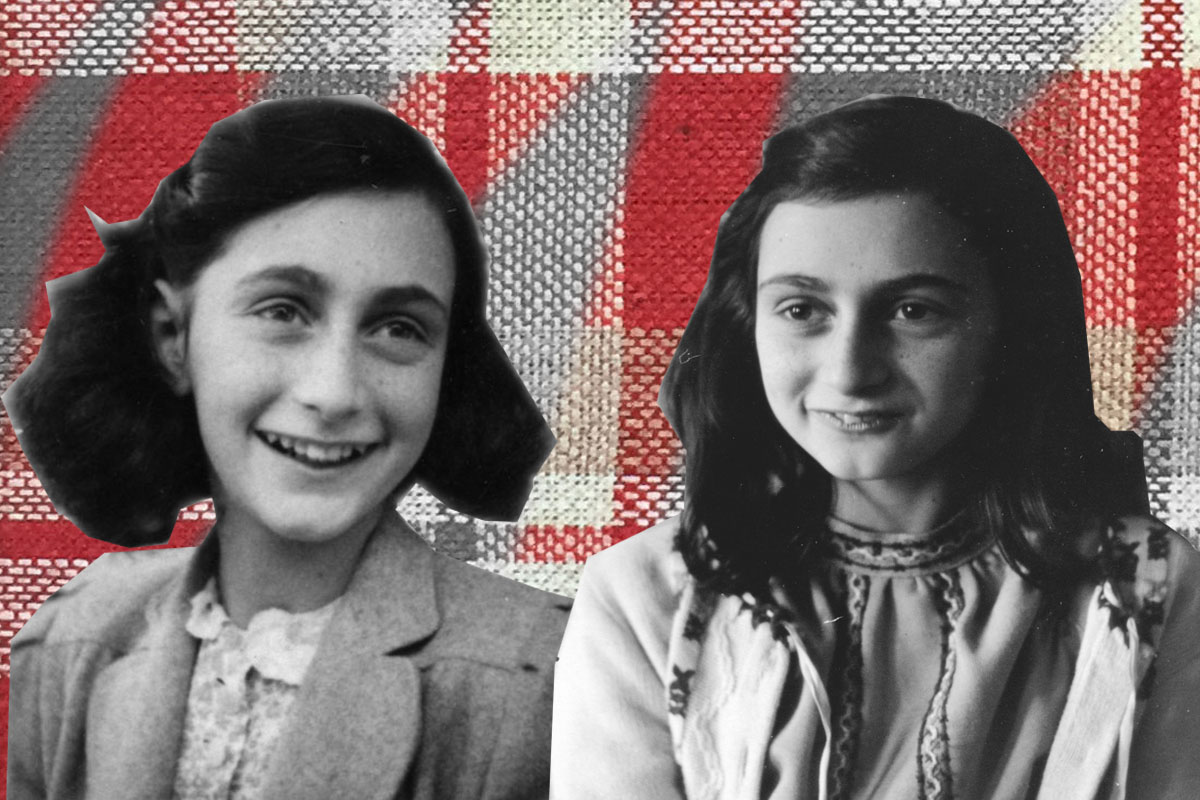One of my most vivid memories from elementary school is learning to perform a song about Anne Frank in sign language. Adapted from her diary, the lyrics to “I Still Believe” hinged on the Holocaust victim’s most infamous written sentence: “In spite of everything, I still believe that people are really good at heart.” It’s a beautiful, globally recognized line, and its fame illustrates exactly how we failed Anne — that’s what I learned when I sat shiva for her. I know what you’re thinking: shiva? For Anne Frank? But she died 64 years ago! Just hold your horses and let me explain.
When she was 15, Anne died of typhus inside Bergen Belson, one of the Nazi’s deadliest concentration camps. Two years later in 1947, her father Otto Frank published the first edition of her diary, but it wasn’t until he authorized a play in 1955 based on the book that people took notice of his daughter. Notably, the first version of Anne’s diary that Otto published was lightly edited to omit unflattering, yet crucially important details of her story which led the world to canonize her. When a movie based on the play was produced in 1959, book sales skyrocketed and, suddenly, everyone knew about the teenage saint who believed that, in spite of the terror that Nazis inflicted on the Jews, in spite of everything, “people are really good at heart.”
Although she’s one of the most famous women in history, Anne’s legacy has been infantilized by people donning rose-tinted glasses. “When we only remember those beautiful bite-size things she said about people being really good at heart, we forget how she died,” writer Rachel McKay Steele told me.
A few weeks ago, I watched Steele, 33, cosplay as Anne Frank in a workshop performance of her solo stage show, “Shiva for Anne Frank.” Between noshing on chocolate rugelach and a bagel with schmear (typical shiva food that was served to the audience), I laughed, cried, mourned, and celebrated Anne’s short life as told through the lens of a Jewish comedian. Throughout the performance, Steele intertwined her own life experiences — from being bullied for her nose job in high school to having anal sex with a German — along with Anne’s to bring the “saint’s” true persona to light.
Speaking with Steele on the phone following her performance, I asked what she hopes people take home from the show. Steele told me she wants people to return to the unedited version of The Diary of Anne Frank. “I would love if it was a book that isn’t something we read in 7th grade to understand the Holocaust,” she said. “There is so much in her writing to relate to as a young woman that is universal.”
Without a doubt, my favorite bits of the performance were the passages from Anne’s unedited diary that Steele analyzed. Her comedic interpretations paired with historical context eroded Anne’s saintly image and grounded her as an average, relatable teen. For example, Steele compared the “Burn Book” (the world’s second most infamous diary from Mean Girls) to Anne’s diary with receipts to support her hilarious joke: “Rob Cohen used to be in love with me too, but I can’t stand him anymore. He’s an obnoxious, two-faced, lying sniveling little goof who has an awfully high opinion of himself.” I mean, come on. If that doesn’t sound like Regina George’s penmanship, then you need to rewatch Tina Fey’s modern classic.
During the show, Steele also highlighted a universal struggle — the mother/daughter relationship. Like most teenagers, Anne had difficulty relating to her mom. She was a total daddy’s girl, and Otto knew it because she told him. “I finally told Daddy that I love ‘him’ more than I do Mother, to which he replied that it was just a passing phase, but I don’t think so,” she wrote. “I simply can’t stand Mother.” Through this passage, Steele illustrated the importance of valuing Anne’s diary not as a means to remember the Holocaust, but as a relatable, coming of age story for young girls.
Luckily for Steele, as she wrote her cosplay manifesto over the summer, the Anne Frank House museum in Amsterdam released two never before seen pages full of dirty jokes from Anne’s diary. And boy, are they juicy. After hearing just a few of them, I can’t imagine that any audience member left Steele’s show refusing to relinquish the myth of Anne’s sainthood.
There was one passage Steele shared that particularly stood out. In the diary’s original version, Otto redacted a paragraph where Anne expressed her desire to kiss Jacque, one of her (platonic) girlfriends. “Every time I see a female nude, such as the Venus in my art history book, I go into ecstasy,” she wrote. “Sometimes I have to struggle to hold back my tears. If only I had a girlfriend!”
Like Steele, I think my narrative would’ve been different if I had read the unedited version of The Diary of Anne Frank when I was going through puberty. If I knew that Anne struggled with her sexuality, that I wasn’t alone in being attracted to both men and women, I would’ve felt more comfortable navigating my own changing world.
But if Otto had originally published his daughter’s diary uncensored, would it have fared as well? Considering that parents are still trying — and failing — to ban the book from public schools, probably not. ”Maybe her story wouldn’t have been as famous because it allowed so many people to compartmentalize her as this innocent young girl who symbolized everything that was good in the world,” Steele told me. “And that is easy to digest.”
In two hours, Steele dismantled the censored, saintly version of Anne, and replaced it with one that paints her the way she should be remembered: an intelligent, hilarious, blunt, queer, budding woman who hated her mom and loved dirty jokes. So, yeah, Anne Frank was not a saint. But she’s still my icon.



